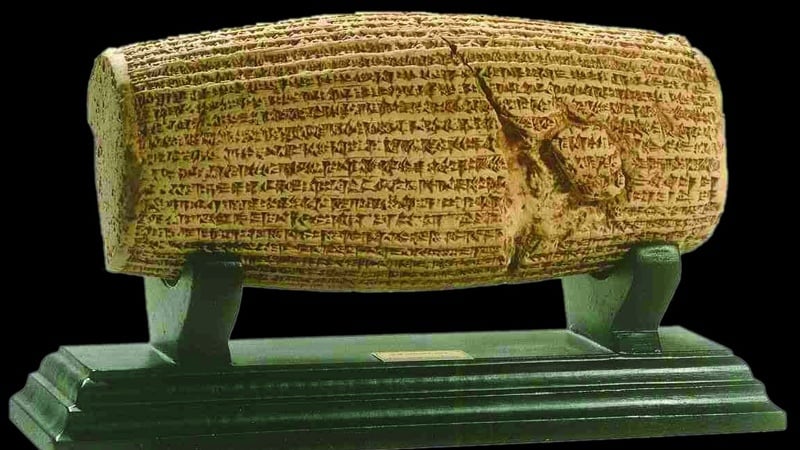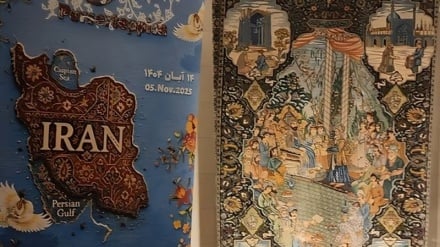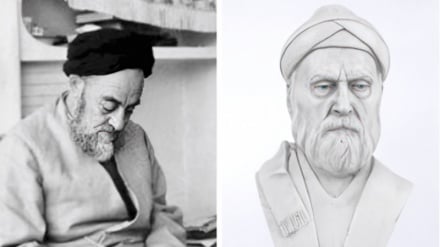The Cyrus Cylinder: Iran’s historical gift for global peace
-

Cyrus Charter registered as world heritage
Pars Today – 26 centuries ago, Cyrus the Great, the ruler of the land of Persia, inscribed a decree on a clay cylinder that is now recognized as the world’s first human rights charter.
According to Pars Today, Cyrus the Great wrote on this clay cylinder:"I granted freedom to all people to worship their own gods, I rebuilt what was destroyed, and I did not tolerate oppression..."This historic inscription, which speaks of religious freedom, reconstruction, and justice, was formally recognized after two decades of joint efforts by Iran, Tajikistan, and Iraq. On November 6, 2025, at the 43rd UNESCO General Conference in Samarkand, it was registered with global consensus.
These words laid the foundation for the first human rights charter inscribed by Cyrus in the annals of history. But registering this global heritage was the culmination of a 20-year journey, marked by tireless efforts from officials, historians, and diplomats from Iran, Tajikistan, and Iraq, who symbolically built a bridge between the past and present.
Finally, in a historic event on November 6, 2025, during the 43rd UNESCO General Conference in Samarkand, the “Cyrus Cylinder” was officially recognized as one of the earliest human rights charters in the world and was unanimously approved by UNESCO member states.
What does the Cyrus Charter say?
Farhad Zare’, a senior archaeology expert at the Pasargad World Heritage Site, explained the content of Cyrus’ inscription: in lines 1 to 20, Cyrus discusses the city of Babylon, one of the major cities of the ancient world, and introduces himself and his lineage. From line 20 onward, he describes his achievements, including the peaceful conquest of Babylon, the liberation of Babylonian captives, and his order to rebuild Jerusalem.
The Cyrus Charter is filled with mercy, kindness, and forgiveness. Cyrus instructed his soldiers to refrain from harming people, their property, or their families. Even if a tree stood in the path of his army, they were forbidden to cut it down.
Iran’s historical gift for global peace
Mohammad Nasiri Haghighat, director of the Pasargad World Heritage Site, said that this charter, written more than 2,500 years ago, shows that Iranians valued human rights even 26 centuries ago, a principle reflected in historical documents.
Nasiri Haghighat added that today, people around the world can refer to this ancient inscription and draw lessons of peace, harmony, and coexistence—a message sent from Iran to the world.
The tomb of Cyrus, the author of the world’s first human rights declaration, is now a global site for intercultural dialogue. Iranians, in the shadow of this tomb, remind the world that peace and tolerance have deep roots in Iran, where respect for human dignity was a language spoken thousands of years ago.
If you want, I can also create a concise, headline-friendly version suitable for international news outlets while keeping the historical and symbolic weight. Do you want me to do that?


